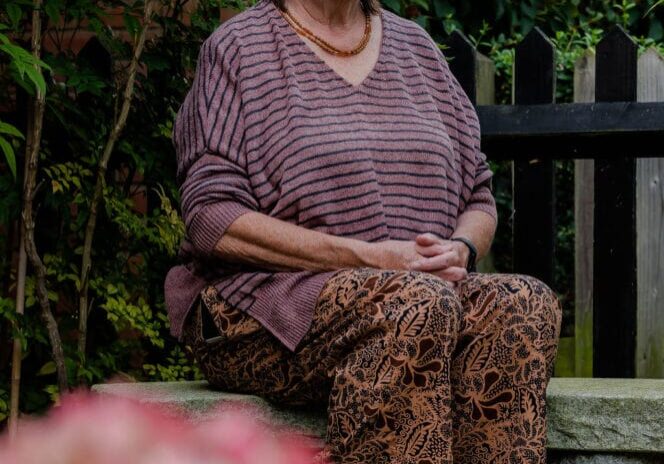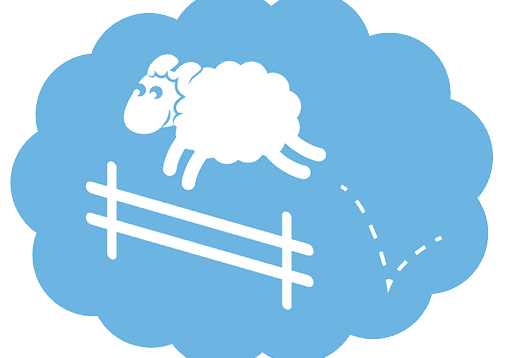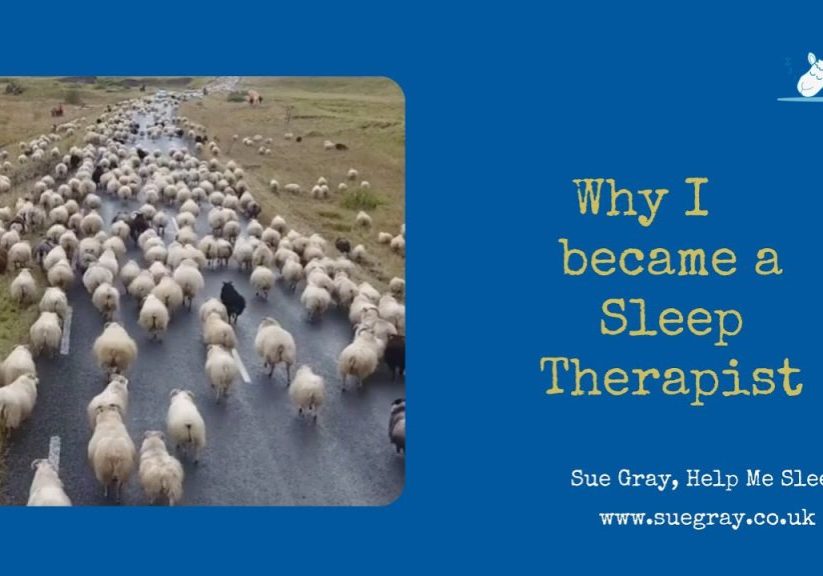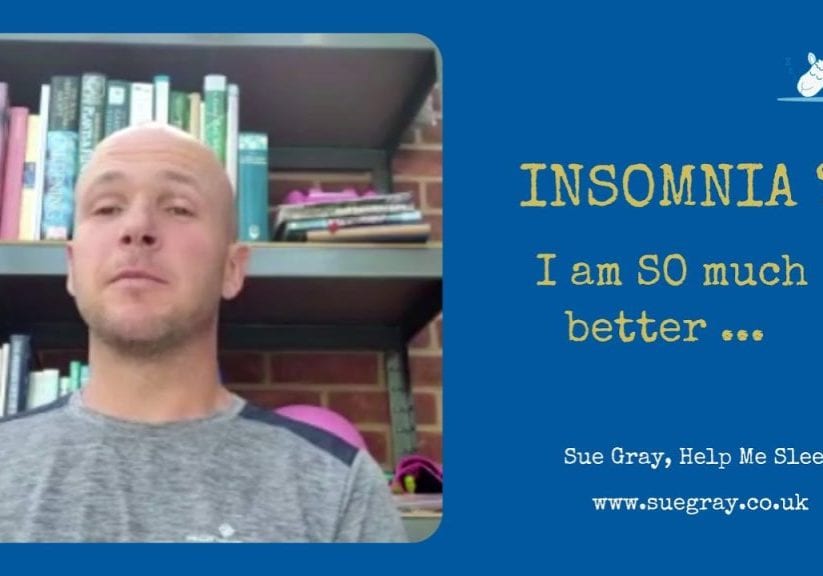Sometimes, we need to change our sleep patterns. This blog tells you the top ten things you can do to adjust your sleep relatively quickly and easily. In this blog, I also look at our circadian rhythms, sleep-wake cycles, and how they control our sleep patterns. We naturally change from Lark to Owl and back again over our lives, but changing your sleep pattern on demand is harder. Finally, I give some pointers to help you if you struggle to wake up and need more energy in the mornings.
When we may need to change our sleep-wake cycle
The clocks go forward one hour in spring, and our sleeping patterns change. For many of us, this change is not noticeable—just like returning from a trip to Europe—but many people find it hard to adjust their sleep-wake cycle when they have to get up early and lose an hour of sleep in the morning.
We are approaching exam time, and a new set of students will be heading off to college. How can they change their sleeping patterns to get the most out of these years?
Then there’s summer holidays – and jet lag – particularly as we get home and have to return to our routines. No afternoon naps by the pool.
If you get a new job, you may need to get up earlier or later. Shift workers have to adjust their sleep according to family and work needs. Others have to change their sleep patterns every few weeks. My son is in the Met and has spent years working with a three- or four-shift system.
Our Circadian Rhythms
Our Circadian Rhythm is our natural sleep-wake cycle. It is regulated by an internal clock located in the hypothalamus region of our brain. This clock is responsible for signalling our body when it’s time to wake up and when it’s time to sleep. However, it does not work alone and can be influenced by external factors such as our daily activities and how our body feels. Here’s a link to some more information about our circadian rhythms
Owls and Larks
Are you an Owl or a Lark? This describes when you feel most awake and focused. Which are you, and have you always been the same? Larks are naturally morning, and Owls are more naturally evening. But you might have noticed that our sleep patterns change throughout our life. Young children are up at dawn, and teenagers are notorious for being unable to get out of bed in the morning and staying awake all night. Being an Owl can cause problems during exam time and when you are trying to turn up regularly at work. Then, in mid-life, most of us get into a phase somewhere between the two. And then, as we get older still, many become Larks again. So sometimes our sleep-wake cycle changes by itself.
I dropped out of A Levels as I couldn’t get to college before 11 and lost numerous temporary jobs because I could not wake up. But I thrived at jobs needing me to stay up all night. For years and years I swam at 7 am, 7 days a week. Now I go to bed early but my most unbroken period of sleep is from 4 am onwards.
Sue Gray
How to change your sleep-wake pattern
Luckily, there are things you can do to reset your internal clock, but there are no miracle cures!
Understand Your Circadian Rhythm
Set a new schedule and stick to it. Our body clock craves consistency, so you must make that effort to stick to your schedule.
We sleep in 90-120 minute cycles, and if you have a regular sleep pattern, you will be able to use a sleep tracker to see when you are normally close to the top of your cycle and set the alarm for that time, as you will be in a light sleep. Waking up in Deep Sleep, or REM Sleep is very difficult and can leave you stunned for hours afterwards.
The 15-Minute Rule for Changing Your Sleep Pattern
If you have time, or if there is a small time difference, then start going to bed and getting up 15 minutes earlier. or later each day. Research shows that fifteen minutes is the optimum. Remember to stick to your new schedule 100%.
Stay up late, Sleep in and Ignore It
My son is in the police in London, and this is his way of dealing with working in a job with 3-4 different shifts. He has also had days when it has been so busy at work that he has had no sleep. His way of adjusting his sleep pattern is to sleep in, stay up late, and eat and drink foods that will support his energy/sleep. He has his routine and sticks to it. So his mind and body know what to expect.
Hypnotherapy
This could be the closest to a miracle cure for some people wanting to change their sleep patterns.. Hypnosis can re-programme your subconscious to make switching to the new routine easier and help you feel more awake in the morning. This is often used with Jet Lag. You have a couple of sessions with a hypnotherapist and a recording to listen to at home.
Nasal Breathing
Learn to breathe through your nose again. Breathe slowly, silently, and gently – like a sleeping cat. Use Alternate Nostril Breathing as a Reset Button and Left or Right Nostril breathing to sleep or get more energy. See my blog on Nasal Breathing. If you are committed to changing your sleep pattern or improving your sleep and well-being, then adopting the Buteyko breathing method will pay huge dividends. It will help you sleep better and get more control of your energy. Practice the Control Pause as recommended in ‘Sleep with Buteyko’ by Patrick McKeown.
Clocks, Blinds & Mask
Some people use multiple alarm clocks to speed across the room and even outside the door, set to go off at different times. If you have a regular sleep pattern, look at your sleep tracker for when you normally start to surface and set the alarm for that time. Trying to wake in Deep Sleep or REM Sleep is very difficult.
A BBC journalist who has to get up at 2 am told me she uses a Sunrise Clock, which has made a huge difference to her ability to get up and get going when she has to adjust her sleep pattern. Blackout Blinds & Eye Masks are worth investing in if you need to sleep in daylight or in a brightly lit area.
Exercise
Make sure you get out in the daylight and exercise as much as you can- this will help you make your new routine a reality,.
Food and Drink
Avoid alcohol as alcohol interferes with your sleep. Have your last meal at least 3 hours before bed.
Naps
Avoid falling asleep during the day, but do have 5 – 10-minute naps – or rests, but no longer. If you allow yourself to fall asleep, you are likely to feel groggier and undo the work you have done so
Meditation
Having a regular meditation practice, preferably based on Watching Thoughts (such as The Bright Path’s Ascension), helps you stay calm, switch off and pay less attention to the negative thoughts telling you how bad it is.
What to do if you struggling to wake up
Act as if
it is easy, and you do it all the time; Smile – make yourself smile, and tell yourself it will be easy. Watch your thoughts
Breathing Exercises
-Use Alternate Nasal Breathing and Right Nostril Breathing. You could also try singing as this helps switch on your parasympathetic nervous system – your ‘feel-good’ and ‘sleep-well’ mode.
Fun
Have something you really want to do – for me, it was a swim before work
More ideas ….
See my blog on Morning Energy.
Finally
If you want some more help changing your sleep-wake pattern, get in touch. I can help you change your breathing to nasal breathing – even if you have a blocked nose. I also offer Clinical Hypnotherapy to make the process easier.
—————————————————————————————————-
References
Circadian Rhythms
https://www.suegray.co.uk/sleep-faq/.
Books on Breathing
Sleep with Buteyko’ by Patrick McKeown.
Nasal Breathing
https://www.suegray.co.uk/nasal-breathing-alternate-nasal-breathing/










